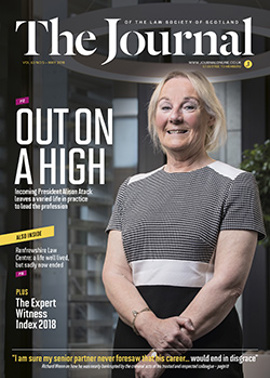Q & A corner

Q. I’m an in-house solicitor at a local authority. My employer is looking at entering into a joint working arrangement with neighbouring councils so that the in-house legal resource can be shared across council areas. Are there any issues with this proposed arrangement?
A. As a general rule, in-house lawyers should act exclusively for their employer and should not advise anyone else.
However, rule B2.1.3 of the Practice Rules states: “where you are an employed regulated person and your only or principal employer is one of the parties to a transaction you shall not act for any other party to that transaction; provided always that you may, where no dispute arises or appears likely to arise between the parties to that transaction, act for more than one party thereto, if and only if: the parties are associated companies, public authorities, public bodies, or government departments or agencies”.
Therefore, provided there is no dispute between the parties (and no dispute is likely to arise), the rule allows for an in-house solicitor to act for a related public authority in a specific transaction.
Moreover, in general terms, solicitors employed in local government are entitled to provide services to bodies to which their employer is entitled to provide services in terms of the Local Authorities (Goods and Services) Act 1970. This Act permits a “local authority” and any “public body” to enter into an agreement for the provision by the local authority or public body of “professional services”. This should mean that a local authority can provide legal services for another local authority or for any joint board or combination of local authorities. However, two issues need to be considered.
First, if an in-house (local authority) solicitor is “contracted out” by their employer to another local authority, it would be appropriate for there to be a service-level agreement between the two councils, and the solicitor would need some guarantee/assurance that he/she would have the appropriate insurance cover and would not be subject to any personal liability in respect of the work carried out by him/her for the other local authority.
Secondly, a conflict of interest could well arise between the two local authorities, which would place the solicitor in a difficult position. The in-house solicitor would need to consider carefully whether there could be any conflict of interest in acting for both local authorities. Conflict of interest is a matter that can only really be considered on its own individual circumstances and when such arise. No overriding or blanket advice can be given as to whether acting for two local authorities might or might not involve a conflict of interest. It is simply a matter of assessing the risk in each individual case prior to acting.
Q. I am acting for an executor in the administration of the estate of their late mother. The deceased’s family have found £15,000 in cash in their mother’s property. The family have asked that I hold this money. Am I able to accept this amount of cash? Would this breach the accounts rules?
A. First, there is no limit as to the amount of cash that a solicitor can receive and therefore there is no breach of the accounts rules.
There are, however, money laundering implications. You should take steps to identify the source of the funds before the money is paid into the clients’ account in line with the customer due diligence requirements in terms of the Money Laundering, Terrorist Financing and Transfer of Funds (Information on the Payer) Regulations 2017.
It can of course be high risk to accept a large amount of money in cash from a client. In these circumstances, it is reasonable for the executor’s solicitor to hold this money, and if you can come to a reasonable conclusion that it is (a) from a legitimate source and (b) belongs to the deceased, then this is all that is expected from you in terms of complying with the regulations.
You should attempt to obtain a profile of the deceased. For obvious reasons, this may be difficult, particularly when the family were not aware that the money was in the property at all.
You should consider whether it is likely that the deceased would have this amount of cash in their home. Given what you know about this person’s wealth, would it be reasonable for them to have this amount of money?
When you ask your client as to why a deceased would have cash at home, a common response is that “They didn’t trust the bank.” This might be the case, but it would not on its own allow you to come to a reasonable conclusion that there is no attempt at money laundering. Do you have any other evidence of where the money has come from? It would also be appropriate to examine any bank statements which may show withdrawals from the deceased’s accounts that would merit the amount of money held in the property.
You should also ask your client to provide you with as much information as they can as to the circumstances of the discovery. Who found the money? Where exactly in the house was the money kept and what state is the money in?
Was the money found in various locations throughout the property, for example in “hiding places” under the bed, in trinket boxes etc? Is it a variation of coins and banknotes? Is the currency varied in age? If the answer to these questions is yes, this is likely to suggest that the money was put there by the deceased and therefore belonged to the deceased.
If on the other hand, the £15,000 is made up of new banknotes that have all been found in a suitcase, for example, it may be unlikely that this belonged to the deceased. Could it have been placed there after the deceased passed away? What is the executor’s position? Who are the beneficiaries? Is there anyone associated with the deceased who could be attempting to money launder the cash through the firm? This may be unlikely, but it should be considered.
Once you have ascertained the position, it would be prudent to obtain affidavit evidence from your client and any other party who can vouch for the circumstances.
If the deceased was in receipt of any means tested benefit, the executor should provide instructions to the solicitor to inform the Department for Work & Pensions as this may impact on the benefits that the deceased received during their lifetime. If the executor instructs you not to do so, you should withdraw from acting.
There may also be other considerations from the perspective of the Master Policy.
If you do have any suspicion that this is an attempt at money laundering, you should consider submitting a suspicious activity report (SAR) to the NCA. If you find yourself in this situation, you should contact the Professional Practice team for advice.
In this issue
- Levelling the land: pro bono expenses orders
- PSLs – an evolving role
- Children's panel appeals and client expectations
- APS and asps
- Reading for pleasure
- Opinion: Sarah Prentice
- Book reviews
- Profile: Katie McKenna
- President's column
- Use DPA to cut rejections
- People on the move
- Succession planning: five key steps
- A broader view of practice
- The Death of a Law Centre
- Something rotten
- Taking the strain in difficult executries
- Gender pay: a common cause
- Law, an emotional process
- Brexit: the devolution factor
- The PI Court makes its mark
- The house the Grants built
- New questions over statements
- Gender pay gap reporting: how employers can action change
- Human rights may not plug the gap
- Deferred debt arrangements: a missed opportunity?
- Scottish Solicitors' Discipline Tribunal
- LBTT: beware the crackdown
- Beating the career block
- Public policy highlights
- OPG update: new bond arrangement
- Profile of the Profession runs again
- Q & A corner
- GDPR: help is at hand
- Risk management – that ubiquitous topic
- Ask Ash
- Time to take aim at targets
- AML: don't miss the 26 June deadline
- Expert Witness Index 2018
- The right diagnosis






